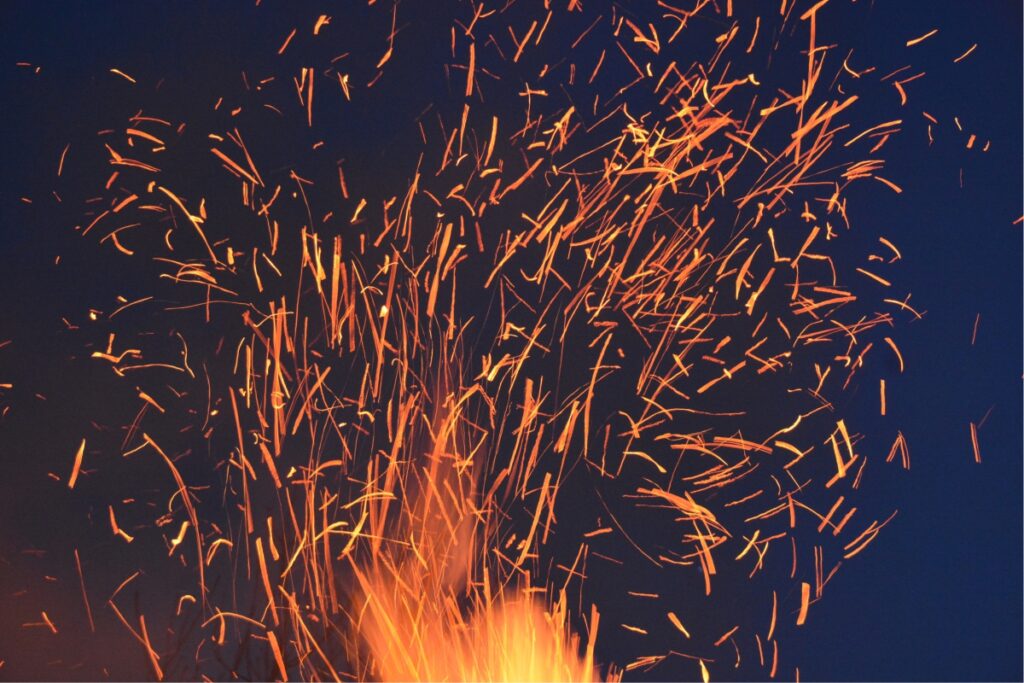Azargan Celebration or Thanksgiving: Which Should We Participate In?
Azargan and Thanksgiving are two distinct celebrations from ancient cultures, both of which are tied to gratitude and appreciation for the forces of nature and the blessings of life. These two celebrations are held quite close to each other on the calendar, each with its own unique history and traditions.
With the rise in migration and the blending of global customs, as we find ourselves caught between two beautiful, joyful occasions, the question arises: Which should we choose? Should we honor our own traditions, or embrace the opportunity to learn and celebrate others’ cultures?
Let’s take a closer look:
Azargan Celebration
The Azargan festival is held every year on the 9th day of the month of Azar, according to the Zoroastrian calendar. This day is celebrated in honor of fire, which in our ancient culture symbolizes purity and light. In ancient times, people believed that fire was one of the sacred elements, symbolizing purity and the eradication of pollution.

Fire has always played a vital role in both religious ceremonies and daily life, and it’s rare to find an ancient festival that doesn’t involve the lighting of fire.
History of the Azargan Festival
The origins of this festival date back to the Zoroastrian era, when fire held a special place as one of the four primary elements of nature. During Azargan, people would light fires to honor this sacred element, gather around, recite prayers, and express their gratitude for the energy and power of fire. This tradition remains alive in some regions today, where people light fires annually to keep this ancient custom alive

Azargan Traditions
Lighting a fire has been one of the core customs of Azargan, from the past to the present. On this day, people gather around large or small fires, recite prayers, and express their appreciation for the purity and light of fire. In some areas, families and friends gather around the fire to talk about the blessings in their lives. Even today, some light candles in their homes to honor this sacred element. Fire has always been a symbol of brightness and energy for our people, and during Azargan, this light is appreciated more than ever.
History of Thanksgiving
Thanksgiving is one of the most significant holidays, celebrated on the fourth Thursday of November. It dates back to the 17th century when European settlers, after their first successful harvest, celebrated this day with the help of indigenous communities, offering thanks for the blessings and abundance in their lives.

Thanksgiving Traditions
The traditions of this day include families gathering around a feast, typically featuring turkey, mashed potatoes, corn, and pumpkin pie. Alongside the delicious food, people recount stories of the first Thanksgiving and give thanks for everything they have in life. This holiday is primarily a time for togetherness and appreciation.

The Close Timing of Azargan and Thanksgiving
Azargan and Thanksgiving are held around the same time each year, and this year, the gap between the two is shorter than ever. Azargan takes place in the month of Azar, while Thanksgiving occurs in November. This timing is interesting, as both festivals are linked to autumn, the end of harvest season, the onset of cold weather, and giving thanks for nature’s blessings.

Although Azargan may not be as widely celebrated as Thanksgiving, we still feel connected to our own culture and traditions. This raises the question: Should we allow our ancient festivals to fade, while giving more energy and excitement to the celebrations of other cultures? This question stirs a sense of patriotism, but with a deeper look, we might realize that all these festivals stem from the same human desire: to be together, celebrate both small and large joys, and express gratitude for the blessings in life.
Though people around the world are diverse in their customs, geography, and languages, we humans are more alike than different. We share common needs, and these needs are met through similar behaviors. These similarities show that, regardless of borders and cultures, the human need to gather and give thanks is universal.

Azargan or Thanksgiving?
Ultimately, the choice of which festival to participate in and which traditions to uphold is a personal one. But no matter which we choose, we can come together, introduce our own roots and culture to others, and learn about the traditions of other countries.
Author: Zahra Barani
